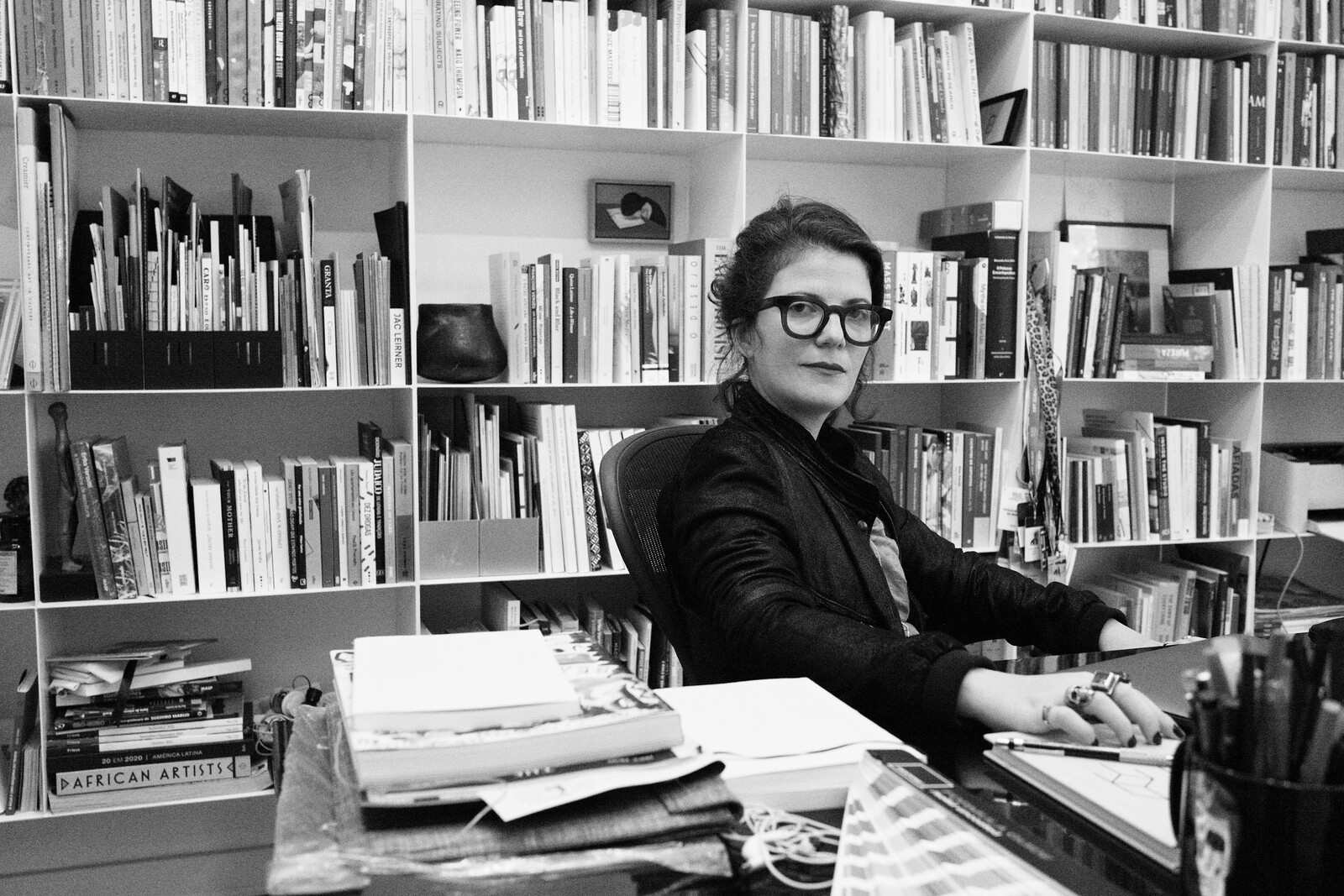September 11–October 28, 2023
1 cours Paul Ricard
75008 Paris
France
Hours: Tuesday–Saturday 11am–7pm
T +33 1 70 93 26 00
info@fondation-entreprise-ricard.com
Artists: Ethan Assouline, Sophie Bonnet-Pourpet, Anne Bourse, Pol Taburet, Eden Tinto Collins, Ana Vaz
Curated by Fernanda Brenner
What binds the six artists participating in the next edition of the Pernod Ricard Foundation Prize is the sheer belief that ghosts do exist. In very different ways, they all deal with what is formally absent and yet state its presence nonetheless. Their (our) willingness to find ways to live with a conjuring of specters is a guiding thread, rather than a theme, for this multilayered project. My initial proposal to the group is to organize a series of six séances (each conducted by an artist) in locations and with dynamics and guests of their choice. The formal and conceptual frameworks of the final exhibition will unfold from this preliminary work.
Séance, from the old French seoir (to sit) and the anatomical séant (posterior), refers to a session predicated on a predetermined duration and in which attention is given and exchanged from a party to someone or something else. It is a way of thinking together and acknowledging the silence around which discourse is ordered. In this sense, a séance always involves hospitality. Far beyond winning an award, the most important part of this project is that all its participants are mutually inflected, affected, and even altered by the unleashed spirits surrounding it.
In the famous interview Jacques Derrida gave to Cahiers du Cinema (1998), he uses the term “séance” and its regulatory temporal connotations to emphasize the overlaps between psychoanalysis and cinema: “[A] screening session or séance [une séance de cinéma] is only a little longer than an analytic session [une séance d’analyse]. You go to the movies to be analyzed by letting all the ghosts appear and speak”. Following his train of thought, ghosts manifest forms of inassimilable difference that stir and disturb homogenous conceptions of space, time, and identity or binary distinctions between life and death, awareness and hallucination, fact and fiction, presence and absence, self and other.
Another important reference to this collective experiment is sociologist Avery Gordon’s concept of “haunting.” For her, to be haunted is not the same as being exploited, traumatized, or oppressed, although it usually involves these experiences or is produced by them. Her use of the term describes an animated state in which a repressed or unresolved social violence makes itself known, sometimes very directly, sometimes more obliquely. Haunting situations happen when home becomes unfamiliar; when the experience of being in linear time is suspended; when your bearings in the world lose direction.
The essence of a ghost—if you can use that word—is that it demands its due and requires your attention. I am not interested in exorcising these spirits but in learning from them (I believe the artists also). In January 2023, we will start this joint venture by greeting the ghosts of the Gare Saint-Lazare. —Fernanda Brenner, 24th Pernod Ricard Foundation Prize’s curator.
Ethan Assouline (1994, Paris) lives and works in Paris. Assouline outlines through his sculpture, publication, writing and drawing, a critical relationship with the city, in its landscape, economic and political dimensions.
Sophie Bonnet-Pourpet (1988, Lyon) lives and works in Paris. Her polymorphous narrative works bring together modern heroines, popular culture, and minimal shapes.
Anne Bourse (1982, Lyon) lives and works in Paris. Her work is traversed by whirling lines and letters evoking burlesque cartoons or psychedelic frescoes.
Pol Taburet (1997, Paris) lives and works in Paris. His work is a heady and iconoclastic mix of references that range from the artist’s own Caribbean background, the region’s synchretic voodoo traditions and belief systems, wider contemporary culture, as well as classical painting.
Eden Tinto Collins (1991, Essone) Lives and works in Paris. Poetician, hypermedia, trobairitz, Meta, she explores the frictions between melancholy, mythology, post-trans, and cyber-humanity.
Ana Vaz (1986, Brasilia) lives and works in Paris. Ana’s filmography activates and questions cinema as an art of the (in)visible and instrument capable of dehumanising the human, expanding its connections with forms of life — other than human or spectral.



